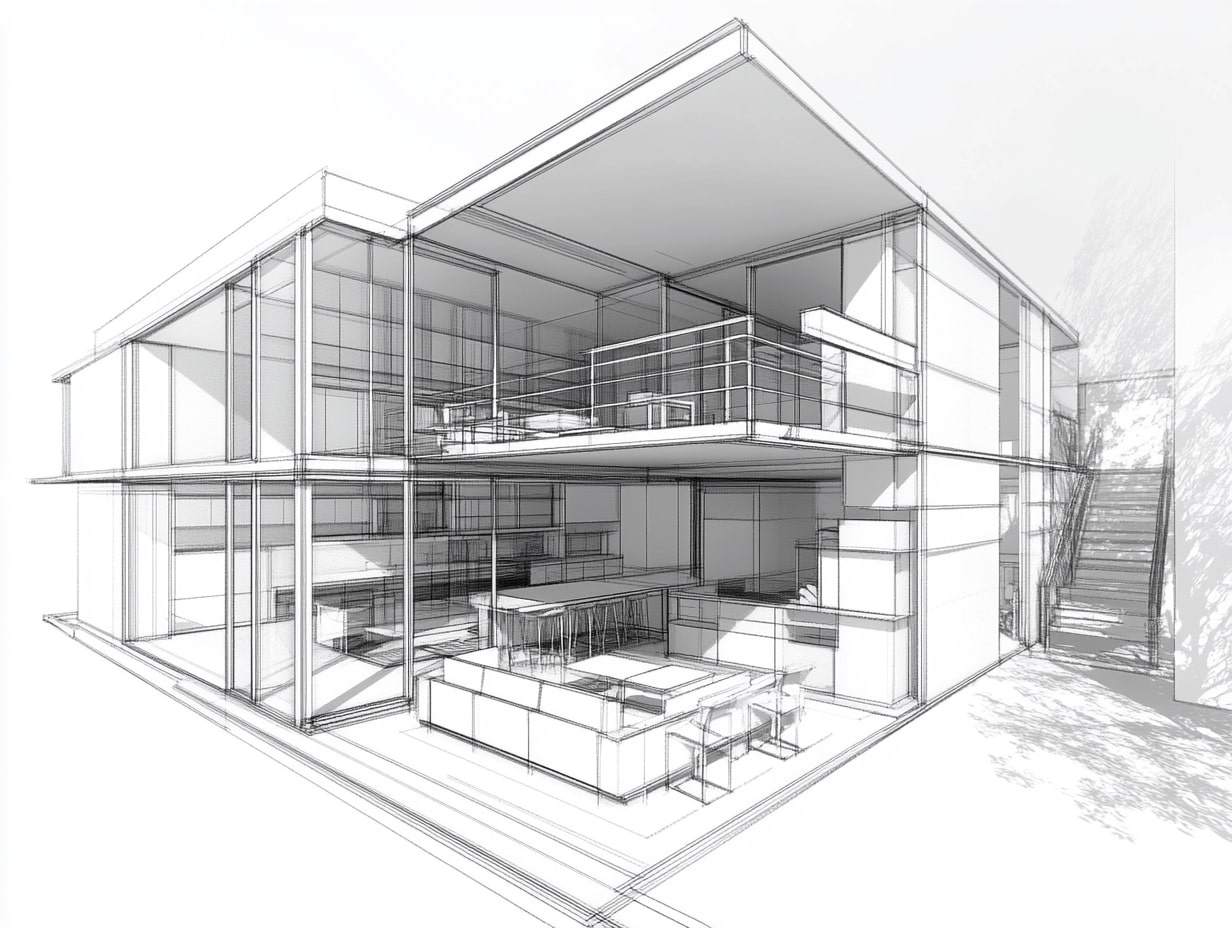In today’s digital age, the way we learn is evolving rapidly, and architecture is no exception. Online architecture courses have emerged as a game-changer, offering a flexible and accessible alternative to traditional education. Whether we’re aspiring architects or seasoned professionals looking to upskill, these courses provide a wealth of opportunities to enhance our knowledge and expertise.
With the convenience of learning at our own pace, online course allow us to balance our education with other commitments. We can dive into a diverse range of topics—from sustainable design to advanced 3D modeling—without the constraints of a rigid schedule. This flexibility not only broadens our horizons but also empowers us to tailor our learning journey to suit our individual goals.
Moreover, online architecture courses connect us with a global community of learners and industry experts. We gain insights from diverse perspectives, enriching our understanding and sparking creativity in our projects.

Overview Of Online Architecture Courses
Online architecture courses offer diverse and practical resources that appeal to different learning needs. They provide interactive materials like video tutorials, quizzes, and project-based assignments, enhancing engagement. This digital approach accommodates various learning styles and paces, allowing users to absorb information in a way that suits them best.
The course selection covers theoretical and practical subjects. Participants explore architectural history, contemporary design trends, and technical skills such as CAD software proficiency. Many courses include expert-led discussions, offering insights from industry veterans.
Studying online removes geographical barriers. Learners connect with peers and professionals worldwide, enriching their educational experience. Networking opportunities abound through virtual workshops and forums, fostering collaboration and innovation.
Affordable pricing structures often accompany these courses. With options ranging from free to fee-based, individuals find suitable programs within their budget. Flexible schedules mean balancing professional, personal, and educational commitments becomes manageable.
We see clear benefits from online architecture courses, addressing accessibility, variety, and networking. This modern educational model supports aspiring and experienced architects aiming to stay competitive in the evolving architecture field.

Accessibility And Flexibility
Online architecture courses have revolutionized how we access and engage with educational content. These courses provide learners with the flexibility to study anytime and anywhere, making education more inclusive regardless of geographical location.
Study At Your Own Pace
Learners have the ability to progress through course materials at a speed that best suits their personal schedules. This self-paced approach ensures that individuals can balance studies with professional and personal obligations, enhancing learning outcomes and reducing stress. If a topic requires more time, learners can adjust their focus accordingly, fostering a deeper understanding.
Access To Diverse Resources
We gain entry to a wide array of resources through online architecture courses. These resources include video lectures, interactive assignments, and expert webinars. Such materials not only cater to varied learning preferences but also provide comprehensive insights into specialized subjects like green architecture, historic preservation, and digital modeling. The diversity of content ensures that we are well-equipped to tackle complex design challenges and stay abreast of industry trends.
Cost-Effectiveness
Cost-effectiveness often distinguishes online architecture courses from traditional options. Enrollment fees for online courses are generally lower than tuition costs at physical institutions. Traditional architecture programs can cost thousands of dollars annually. For example, online courses may only require a few hundred dollars, offering substantial savings.
Eliminating commuting expenses further enhances affordability. Online courses negate the need to travel, thereby reducing transportation costs and saving time. Learners only need a reliable internet connection and a compatible device to access materials. This convenience translates to notable economic and time benefits.
Online resources like e-books and virtual tools replace expensive textbooks and software. Several platforms include materials as part of the course fee, which avoids additional expenses. Instructors often provide downloadable materials, ensuring learners access necessary content without buying costly books.
Flexibility in payment plans makes budgeting simpler. Many platforms offer options to pay per course or access subscription models. These plans allow us to select the most suitable financial structure, ensuring clear financial planning. Discounted rates for bundles or membership plans often further reduce overall costs.

Skill Development And Enhancement
Online architecture courses significantly boost our professional capabilities. They offer an extensive range of topics that fine-tune both technical and creative skills essential for success in architecture.
Technical Skills
We gain proficiency in critical software like AutoCAD, Revit, and SketchUp through online architecture courses. Video tutorials and hands-on exercises demonstrate step-by-step processes, ensuring we master tools necessary for precise design work. Specialized courses provide deep dives into areas like building information modeling (BIM) and structural analysis. This focused approach enhances our technical abilities, enabling us to execute detailed and complex architectural projects confidently.
Creative Skills
Our creative thinking develops through exposure to diverse architectural styles and innovative design concepts. Online courses encourage exploration by presenting case studies and industry projects from various global perspectives. Interactive assignments challenge us to apply learned techniques in unique, creative solutions, fostering originality and imaginative design thinking. This continuous practice strengthens our ability to envision and implement artistic and functional spaces in real-world scenarios.

Networking Opportunities
Exploring online architecture courses opens up unique networking avenues that enrich professional growth. These courses connect learners with diverse individuals worldwide, offering a variety of perspectives.
Global Learning Community
A global learning community flourishes within online architecture courses. Participants engage with peers and experts from different countries, fostering an exchange of cultural and professional insights. Learners benefit from collaborative platforms that host forums and group projects, enhancing their understanding of global architectural practices. This international exposure not only broadens horizons but also sparks innovative design ideas.
Staying Current With Industry Trends
Navigating the rapidly changing architecture landscape requires professional growth through online architecture courses. These courses offer direct access to the latest insights and methodologies shaping the industry.
Access To Latest Tools And Software
Online architecture courses frequently update their curriculum with cutting-edge tools and software, ensuring our skills remain relevant. We’re able to engage with essential programs like AutoCAD or Revit through interactive lessons, which include demonstrations and simulations. This approach not only enhances our technical proficiency but also equips us to adapt to technological advancements quickly. By staying up-to-date with these resources, we consistently align our expertise with the industry’s evolving demands.
Conclusion
Online architecture courses offer an unmatched blend of flexibility and comprehensive learning that caters to diverse needs in the architectural field. From enhancing technical skills through platforms providing CAD software training to engaging creative faculties with innovative assignments, these courses redefine architectural education. Interacting with a global network enhances professional insights, while the cost-effectiveness ensures broader accessibility. Staying updated with industry trends through continuously refreshed content positions learners advantageously in the dynamic landscape of architecture. The transformative potential of online architecture education supports both personal growth and professional advancement, making it an invaluable resource for contemporary and aspiring architects alike.







